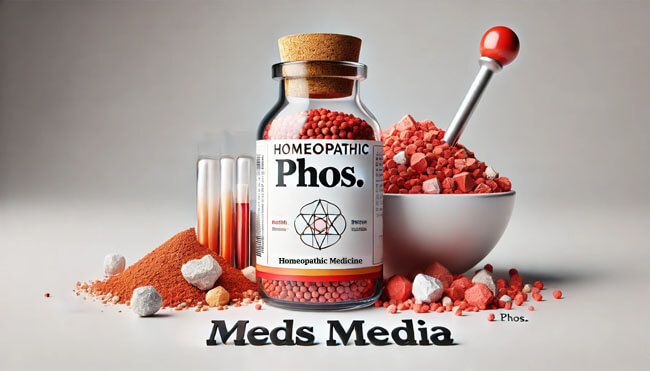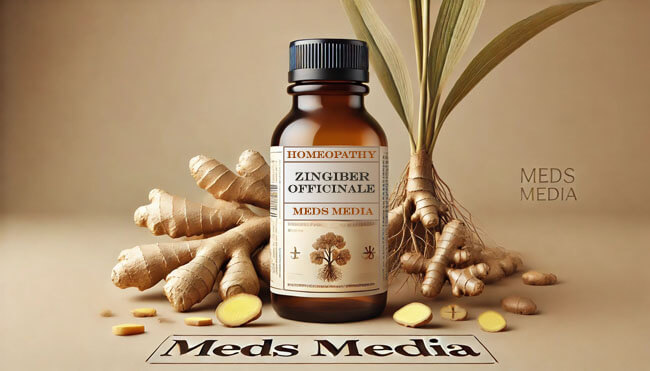
Triosteum perfoliatum is a homeopathic medicine derived from a plant known as fever root or wild coffee. It is primarily used in homeopathy to treat various symptoms related to the respiratory and gastrointestinal systems. Here is some information about Triosteum perfoliatum, including its properties, preparation, symptoms, and other relevant details:
Properties and Preparation:
Triosteum perfoliatum is prepared from the dried root of the plant. It belongs to the family Caprifoliaceae.
The plant is native to North America and is characterized by its opposite, sessile leaves that are united at the base around the stem.
The root is collected during the flowering period and then dried for further processing.
The homeopathic remedy is prepared through a process of potentization, where the original substance is diluted and succussed (shaken vigorously) to create different potencies.
Symptoms and Materia Medica:
Triosteum perfoliatum is known to affect the mucous membranes, respiratory system, and digestive system.
It is commonly used for treating respiratory conditions such as dry cough, sore throat, hoarseness, and nasal congestion.
It is also indicated for gastrointestinal issues like nausea, diarrhea, abdominal pain, and loss of appetite.
Triosteum perfoliatum may be beneficial for individuals who experience fatigue, backache, headaches, and joint pain.
Dry Cough: A persistent cough that produces little to no phlegm or mucus. The throat may feel dry and irritated.
Sore Throat: Inflammation and discomfort in the throat, often accompanied by difficulty swallowing.
Hoarseness: A rough or strained voice due to inflammation or irritation of the vocal cords.
Headache: Pain or discomfort in the head, varying in intensity and location.
Nausea: The feeling of queasiness or an urge to vomit, often accompanied by a sensation of unease in the stomach.
Diarrhea: Frequent, loose or watery bowel movements.
Abdominal Pain: Discomfort or pain in the abdominal region, ranging from mild to severe.
Fatigue: A state of extreme tiredness or lack of energy.
Backache: Pain or discomfort in the back, often in the lower region.
Nasal Congestion: Blockage or stuffiness in the nasal passages, making it difficult to breathe through the nose.
Loss of Appetite: A reduced desire to eat or a lack of interest in food.
Sneezing: The sudden, involuntary expulsion of air from the nose and mouth, often accompanied by a runny nose.
Dry Mouth: A lack of sufficient saliva in the mouth, leading to a dry and uncomfortable sensation.
Restlessness: The inability to rest or be still, often accompanied by a sense of unease or anxiety.
Joint Pain: Discomfort or stiffness in the joints, which may be exacerbated by movement.
FAQ:
Q: Is Triosteum perfoliatum safe to use?
A: As a homeopathic remedy, Triosteum perfoliatum is considered safe when used as directed and in appropriate potencies. However, it is always recommended to consult a qualified homeopathic practitioner before using any homeopathic medicine.
Q: How should Triosteum perfoliatum be taken?
A: The dosage and potency of Triosteum perfoliatum can vary depending on the individual and their specific symptoms. It is best to consult a homeopathic practitioner for proper guidance on dosage and administration.
Q: Can Triosteum perfoliatum be used during pregnancy or while breastfeeding?
A: It is advisable to seek professional guidance from a homeopathic practitioner regarding the use of Triosteum perfoliatum during pregnancy or while breastfeeding. They will consider your specific circumstances and advise you on the appropriateness and dosage.
Q: Can Triosteum perfoliatum be used alongside other medications?
A: It is generally safe to use Triosteum perfoliatum alongside conventional medications. However, it is important to inform your healthcare provider about all the medications you are taking, including homeopathic remedies, to avoid any potential interactions.
Q: Are there any known side effects of Triosteum perfoliatum?
A: Homeopathic remedies are highly diluted and generally considered safe with minimal risk of side effects. However, in rare cases, some individuals may experience an aggravation of symptoms or a temporary increase in intensity before improvement occurs. If you notice any unusual or worsening symptoms, it is recommended to stop using the remedy and consult a healthcare professional.
Books Reference:
“The Materia Medica and Clinical Therapeutics of the Most Prominent Homeopathic Remedies” by Timothy F. Allen
“Keynotes and Characteristics with Comparisons of Some of the Leading Remedies of the Materia Medica” by Henry C. Allen
“A Dictionary of Practical Materia Medica” by John Henry Clarke
Please note that the information provided here is for informational purposes only and should not be considered a substitute for professional medical advice. It is always advisable to consult a qualified homeopathic practitioner or healthcare professional for individualized guidance and treatment.
Why Meds Media guides are different
We focus on clear, practical explanations of homeopathic and natural health topics so you can understand remedies, symptoms, and lifestyle changes in simple language.
Meds Media is an educational resource only. Always consult a qualified doctor or homeopathic practitioner before starting, stopping, or changing any treatment.
Similar Posts You may also like
Zincum Picricum Homeopathic Medicine & Personality | Uses, Benefits & Indications
Zincum Phosphoricum Homeopathic Medicine & Personality | Uses, Benefits & Indications
Zincum Iodatum Homeopathic Medicine & Personality | Uses, Benefits & Indications
Zincum Bromatum Homeopathic Medicine & Personality | Uses, Benefits & Indications
Zea Homeopathic Medicine & Personality | Uses, Benefits & Indications
Zincum Aceticum Homeopathic Medicine & Personality | Uses, Benefits & Indications
Zincum Cyanatum Homeopathic Medicine & Personality | Uses, Benefits & Indications
Zincum Muriaticum Homeopathic Medicine & Personality | Uses, Benefits & Indications
Zincum Oxydatum Homeopathic Medicine & Personality | Uses, Benefits & Indications
Zincum Sulphuricum Homeopathic Medicine & Personality | Uses, Benefits & Indications

Phosphorus Homeopathic Medicine & Personality | Uses, Benefits & Indications
Causticum Homeopathic Medicine & Personality | Uses, Benefits & Indications

Top Global Homeopathic Medicine Manufacturers

Top renowned Homeopathic research institutes worldwide

Veratrum Viride Homeopathic Medicine & Personality | Uses, Benefits & Indications

Spongia Tosta Homeopathic Medicine & Personality | Uses, Benefits & Indications

Zingiber Officinale Homeopathic Medicine & Personality | Uses, Benefits & Indications


